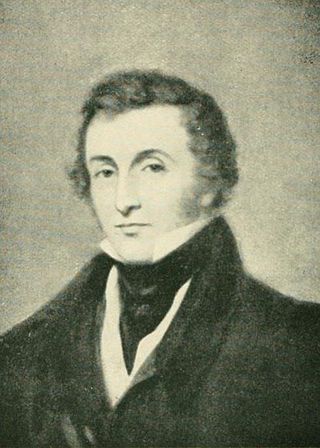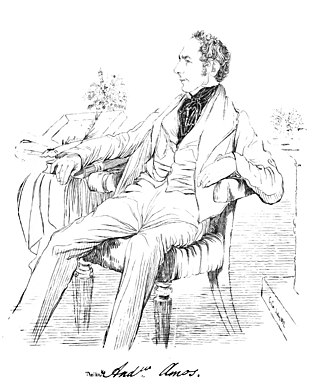
Edward Foss was an English lawyer and biographer. He became a solicitor, and on his retirement from practice in 1840, devoted himself to the study of legal antiquities. His Judges of England was regarded as a standard work, characterized by accuracy and extensive research. Biographia Juridica, a Biographical Dictionary of English Judges, appeared shortly after his death.

Sir Martin Archer Shee was an Irish portrait painter. He also served as the president of the Royal Academy.

The Commentaries on the Laws of England are an influential 18th-century treatise on the common law of England by Sir William Blackstone, originally published by the Clarendon Press at Oxford between 1765 and 1769. The work is divided into four volumes, on the rights of persons, the rights of things, of private wrongs and of public wrongs.

Sir William Jardine, 7th Baronet of Applegarth FRS FRSE FLS FSA was a Scottish naturalist. He is known for his editing of a long series of natural history books, The Naturalist's Library.

Baden Powell, MA FRS FRGS was an English mathematician and Church of England priest. He held the Savilian Chair of Geometry at the University of Oxford from 1827 to 1860. Powell was a prominent liberal theologian who put forward advanced ideas about evolution.
Thomas Bayly Howell FRS was an English lawyer and writer who edited and lent his name to Howell's State Trials.
The nominate reports, also known as nominative reports, named reports and private reports, are the various published collections of law reports of cases in English courts from the Middle Ages to the 1860s.
George William Johnson, was a British writer on gardening.

Stephen Lushington, generally known as Dr Lushington, was a British judge, Member of Parliament and a radical for the abolition of slavery and capital punishment. He served as Judge of the High Court of Admiralty from 1838 to 1867.

Andrew Amos was a British lawyer, judge, and professor of law.
William Newland Welsby was a legal writer who was born in Acton, Cheshire about 1802, was the only son of William Welsby of the Middle Temple, gentleman.
John Frederick Archbold (1785–1870) was a barrister and legal writer. He was the first editor of the English criminal law textbook Archbold Criminal Pleading, Evidence and Practice, which is still routinely used in court today.
William Robinson (1801–1870) was an English lawyer, known as a law reporter.
John Wright (1770?–1844) was an English bookseller, author, editor and publisher.

Sir Harry Lushington Stephen, 3rd Baronet was a British barrister and Judge of the Calcutta High Court.







